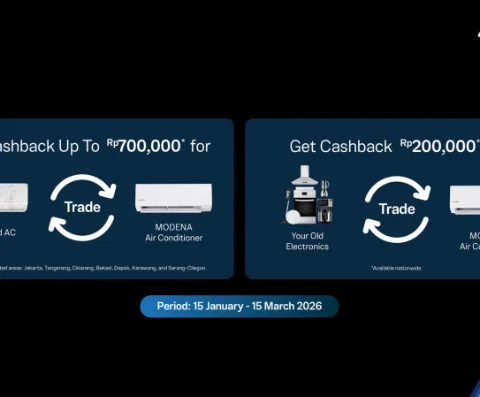Samsung has rejected a deal from the Indonesian government to build a mobile phone factory in Indonesia according to several sources. The reports cited Industrial Minister MS Hidayat and a director general at the ministry who conceded to the decision by Samsung. Indonesia now needs to look very closely into its policies and practices to rethink its position and approach in foreign cooperation ahead of the ASEAN economic plans for 2015.
Back in September 2012, Dow Jones reported that Samsung and the Indonesian government had begun to explore the possibility of building a mobile phone factory in the country. The Indonesian government had been working to expand domestic production of consumer electronic goods beyond white goods and home appliances but apparently is facing difficulties to convince foreign partners.
More sticks, fewer carrots
According to Investor Daily, Minister MS Hidayat said, “Samsung has chosen Vietnam and China as the basis for its production”. Agus Tjahajana, director general of International Industrial Cooperation said, “I don’t know why Samsung chose Vietnam, but I suspect it’s similar to the reason why BlackBerry chose Malaysia”.
Samsung’s mobile phone business in Indonesia is worth USD 1.2 billion in 2012 according to IndoTelko and will have easily exceeded that by the end of this year given the popularity of its various Galaxy-branded devices. That value represents over 25 percent of all mobile phone imports into Indonesia which is estimated at USD 4.5 billion.
At the end of 2012, the Ministry of Trade had issued a new, tighter import regulation for mobile phones and tablets which according to Trade Minister Gita Wirjawan, aims “to uphold the health, safety, and security of the environment and the industrialization of mobile phones and computers in the future”.
The seven points introduced in the new regulation had reportedly been causing some difficulties for mobile device companies causing many delays and canceled certain product launches throughout 2013. Some may have considered the regulation as a stick to discourage imports and persuade companies to build factories in the country but it hasn’t worked that well. It seems that other factors are playing much stronger roles to convince companies otherwise.
Setback affects Indonesia more so than Samsung
Samsung’s rejection is a setback for both the company as well as the Indonesian government but especially the nation as this means that the burgeoning Indonesian market will remain as it is, a market, not a major player in the rapidly growing industry. Being shunned by BlackBerry in favor of Malaysia for its factory may be one thing as the company was already on a rapid downward spiral, but being denied by what is currently the biggest consumer electronics company in the world, is a major blow.
Samsung’s choice to increase its investment in Vietnam instead of Indonesia means the company will continue to face the increasingly rigid Indonesian import regulations for mobile phones, but for the government, it also serves as a point for reflection.
Slow progress with Foxconn
The government is also in the middle of a similar negotiation with Foxconn. While Foxconn reportedly had gone a little bit further than Samsung by signing a memorandum of understanding with Indonesian mobile industry giant Erajaya to build a factory for Erajaya’s own brand of mobile devices, discussions have been slow.
The reported Foxconn deal had been in the works for at least a couple of years now, perhaps even longer and stage one of the multiyear plan was supposed to have been launched at the end of 2012. Four quarters later, progress has crawled and Foxconn is no closer today than it was back in May of this year.
Reform for 2015 is badly needed
With the ASEAN Economic Community set to arrive in 2015, Indonesia’s increasingly tight industrial and manufacturing regulations will place the country in a major disadvantage if it fails to deliver an attractive investment opportunity. The ASEAN goal for 2015 is to have freedom of movement for all manners of labor, capital, and resources across the entire region, allowing companies to treat the region under one common set of regulations and policies rather than separately according to each country.
Indonesia needs to present itself not only as a competitive and attractive nation for foreign and even local investments but it also needs to show and prove that the country is a safe and friendly environment for businesses and their workers. It is up to the government, both current as well as the upcoming one which will be in place following 2014’s parliamentary and presidential elections, to introduce a far more hospitable environment for investors, companies, and consumers alike.
[header imager from Shutterstock]








